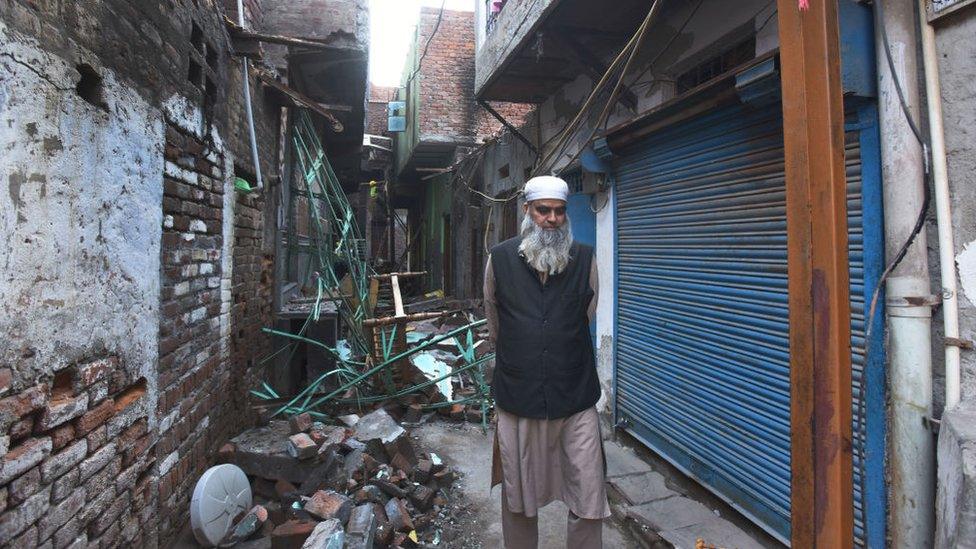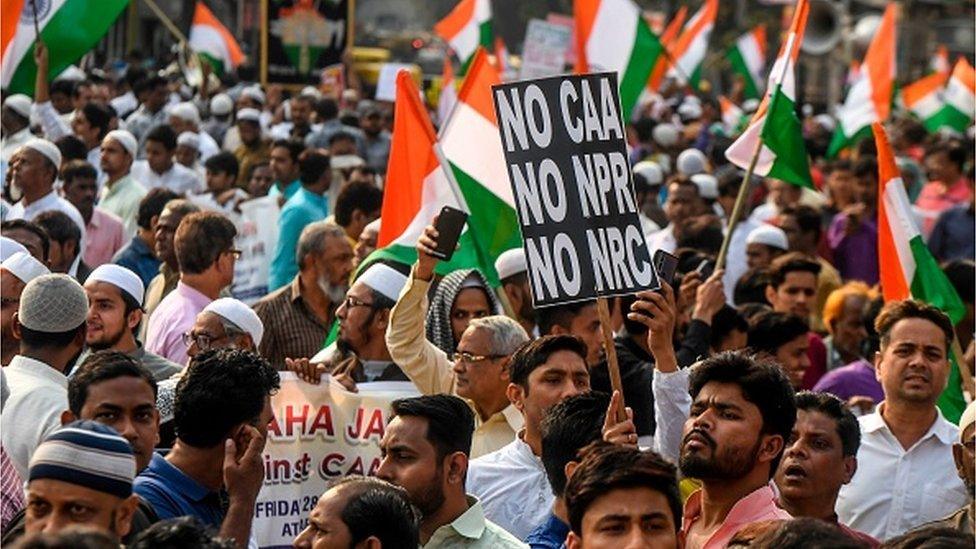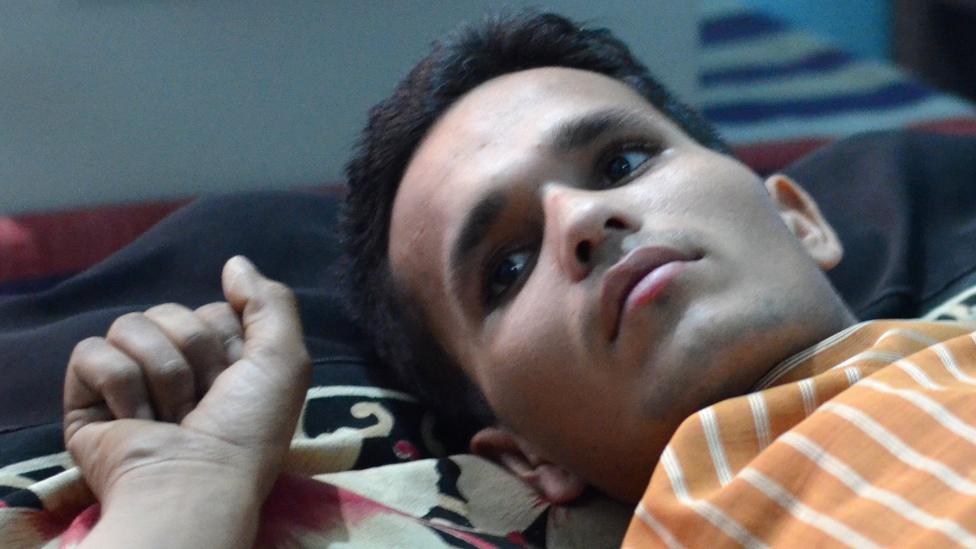India rejects scathing US religious freedom report as 'biased'
- Published

The USCIRF report criticised the Citizenship Amendment Act, India's controversial citizenship bill
India has rejected the findings of a US religious freedom panel which has named it a "country of particular concern", since the Hindu nationalist Bharatiya Janata Party (BJP) was re-elected.
The annual report by the United States Commission on International Religious Freedom (USCIRF) places India alongside Pakistan, China and North Korea.
Delhi said the report was "biased" and a "new level of misrepresentation".
This is the first time India has been placed in this category since 2004.
In its key findings, the USCIRF report says that following the landslide victory of Prime Minister Narendra Modi's BJP in 2019, "the national government used its strengthened parliamentary majority to institute national level policies violating religious freedom across India, especially for Muslims".
It also made special mention of India's controversial Citizenship Amendment Act (CAA), adding that "Home Minister Amit Shah referred to migrants as 'termites' to be eradicated".
Allow X content?
This article contains content provided by X. We ask for your permission before anything is loaded, as they may be using cookies and other technologies. You may want to read X’s cookie policy, external and privacy policy, external before accepting. To view this content choose ‘accept and continue’.
Nadine Maenza, the vice chair for the religious freedom watchdog, said that the CAA "potentially exposes millions of Muslims to detention, deportation, and statelessness when the government completes its planned nationwide National Register of Citizens".
India's government rejected the observations in the report.
"Its biased and tendentious comments against India are not new," said external affairs ministry spokesperson Anurag Srivastava. "On this occasion, its misrepresentation has reached new levels. We regard it as an organisation of particular concern and will treat it accordingly."
Allow X content?
This article contains content provided by X. We ask for your permission before anything is loaded, as they may be using cookies and other technologies. You may want to read X’s cookie policy, external and privacy policy, external before accepting. To view this content choose ‘accept and continue’.
The religious freedom panel had even recommended "targeted sanctions on Indian government agencies and officials responsible for severe violations of religious rights".
Two of the nine-member panel expressed dissent over the recommendations. Commissioner Tenzin Dorjee said "India does not belong to the same category as authoritarian regimes like China and North Korea. India is the largest democratic nation in the world, where the CAA has been challenged openly by the opposition Congress Party and law makers, civil society, and various groups".
The Indian American Muslim Council, an advocacy group, welcomed the report. In a statement, it said: "As a part of the Indian diaspora that only wishes well for the country of our birth, we view international criticism of India's religious freedom record as distressing but painfully necessary, given the escalating level of persecution of minorities."
It further said that in March, "along with its partners, International Christian Concern (ICC) and Hindus for Human Rights (HfHR), it had written to USCIRF urging it to bring India into its list of the worst offenders of religious freedom violations in the world".
- Published10 July 2019

- Published12 March 2024

- Published12 August 2015
